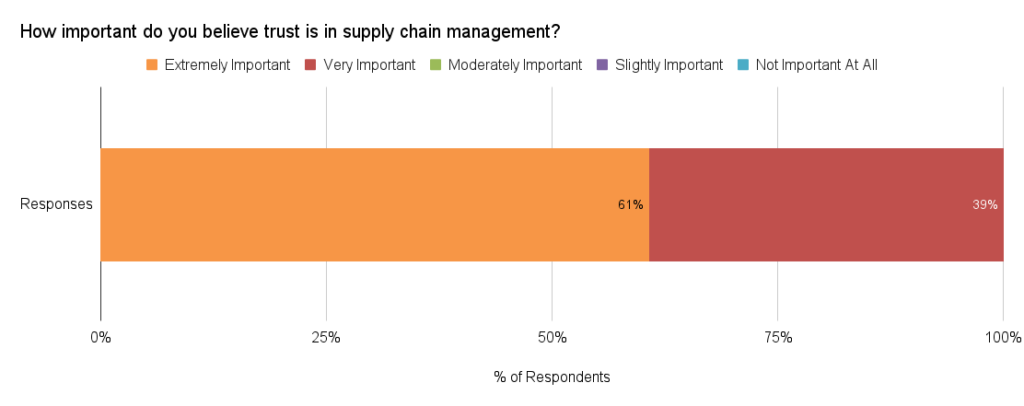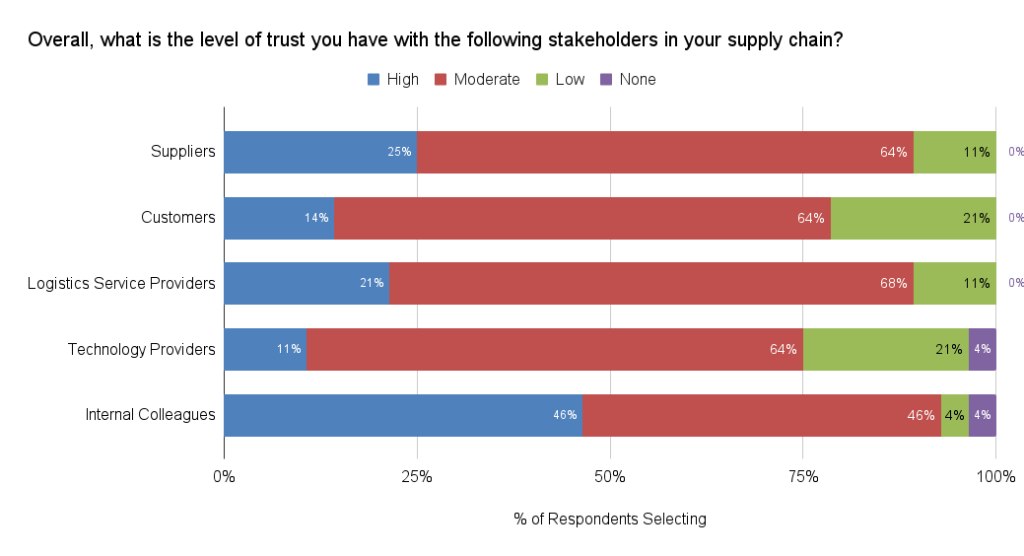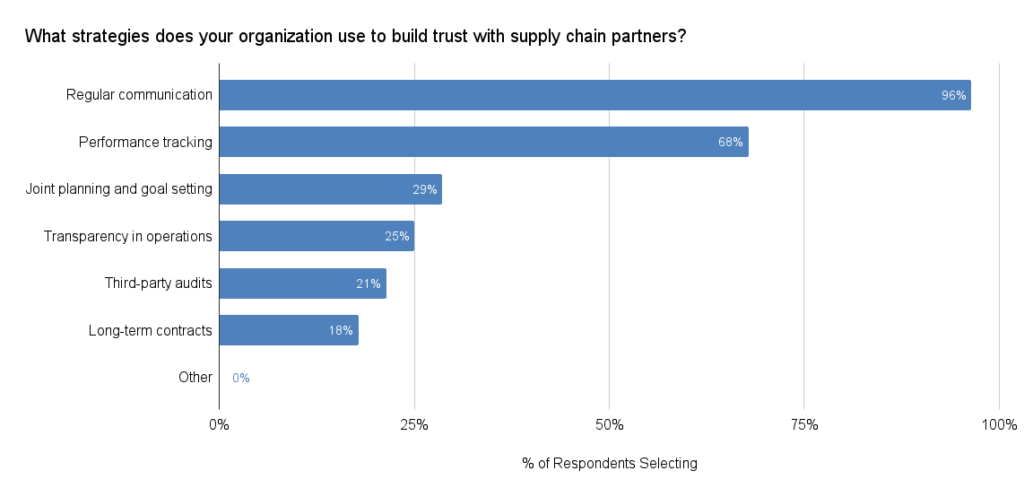At the start of 2017, I wrote a post highlighting four things supply chain and logistics professionals should stop doing in the new year. Last January, I updated the list and added a couple of more things to stop doing in 2024 and beyond (see “Supply Chain New Year’s Resolutions: Things To STOP Doing In 2024”). Here’s the list, but I encourage you to read the post where I share thoughts on each one.
- Stop viewing technology as a silver bullet.
- Stop viewing logistics as a cost center.
- Stop bullying your suppliers, carriers, and other trading partners.
- Stop passing the buck on responsibility when it comes to creating socially responsible and ethical supply chains.
- Stop excluding frontline workers (“power users”) from technology evaluation and selection process.
- Stop confusing Cooperation with Collaboration.
This year, I want to start a new list, but this one focused on things supply chain and logistics professionals should START DOING MORE in the new year. I’ll share one today, which is related to points 3 and 6 above: start trusting more.
I’ve written about the trust problem in supply chain management before — for example, see “Addressing The Trust Problem In Supply Chain Management” and “The Supply Chain Problem $100 Million And Smart Executives Can’t Solve” — so I won’t repeat myself here.
Instead, I want to share some insights on this topic from our Indago supply chain research community. In a survey we conducted in August 2024 with our members, who are all supply chain and logistics executives from manufacturing, retail, and distribution companies, 61% of the respondents said that trust in supply chain management is “Extremely important”; the remaining 39% believe that it is “Very important.”

Trust levels vary across different stakeholders. 46% of the respondents said they have a “High” level of trust in their Internal Colleagues. In contrast, only 11% said they have a high level of trust in their Technology Providers. The respondents also trust their Suppliers more than their Customers.

What strategies does your organization use to build trust with supply chain partners? “Regular communication” topped the list of strategies, with 96% of the respondents selecting it. This was followed by “Performance tracking” (68%) and “Joint planning and goal setting” (29%).

“The post-pandemic business environment has become very chaotic,” said an Indago executive. “Going back to the basics with personal meetings and constant communication has been a key factor for me to build and gain trust from/to stakeholders.”
Here are some other comments from our Indago members:
“Trust is critical due to the length and number of partners in the supply chain, especially with 3PL and 4PL models. We’ve found that lack of transparency, whether in responsiveness or quality of information, has suffered at times when the information is beyond second hand. Technology has helped improve visibility, but it’s still not a closed loop system and inevitably small incidents that are not handled appropriately cause pain.”
“With recent supply chain disruptions, building trust is key to regaining confidence and business.”
“Trust comes through collaboration, communication and consistency — plus monitoring. Performance to expectations yields trust amongst partners in the supply chain.”
“Thankfully I have not yet had a serious breach of trust, but did have a situation where a prospective vendor (G) went behind our backs and told one of our current vendors (F), whom they also partnered with, that we were having conversations with them. Unfortunately, this incident changed our opinion of the potential relationship, and although we did eventually work with vendor G, we never fully trusted them to have our best interests at heart and never expanded our business with them.”
“Unfortunately, the value and existence of trust has become significantly diminished over time.”
Indago members can download the full research report at our website.
As I wrote a few weeks ago, many of the problems that persist in supply chain management boil down to a lack of trust between people, functional groups, and trading partners, and because every company continues to look out only for itself instead of taking a truly collaborative approach focused on creating shared value across their supply chain network.
You can invest all you want on AI and other technologies, but if we don’t solve the trust problem in supply chain management, many of the issues that plague the industry will persist.
What do you think? Post a comment and share your perspective.
What are you waiting for? Join Indago today!
If you’re a supply chain or logistics practitioner from a manufacturing, retail, or distribution company — and you’re interested in learning from your peers — I encourage you to learn more about Indago and join our research community. It is confidential, there is no cost to join and the time commitment is minimal (2-4 minutes per week) — plus your participation will help support charitable causes like Breakthrough T1D (formerly JDRF), American Logistics Aid Network, American Cancer Society, Feeding America, and Make-A-Wish.









